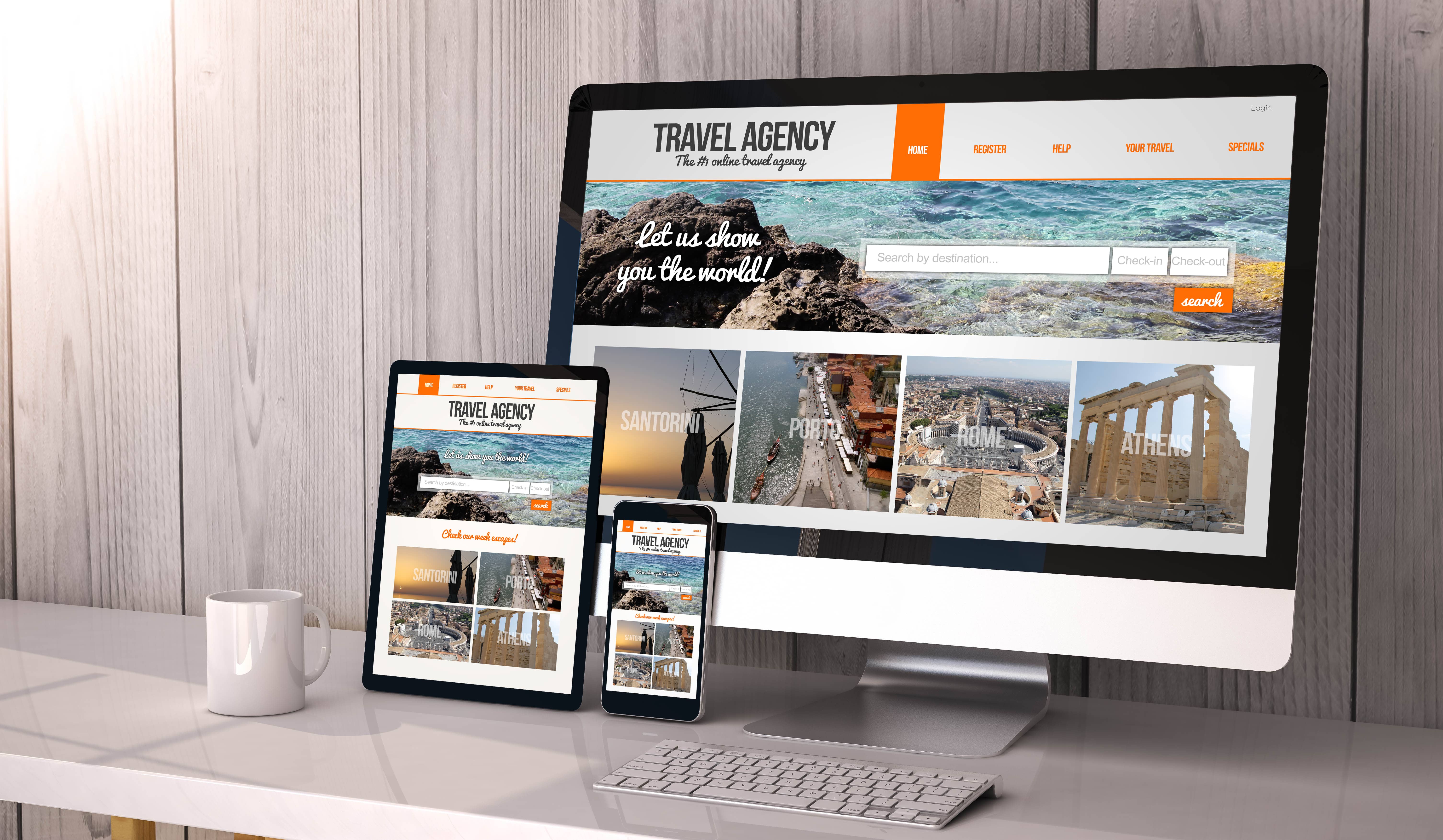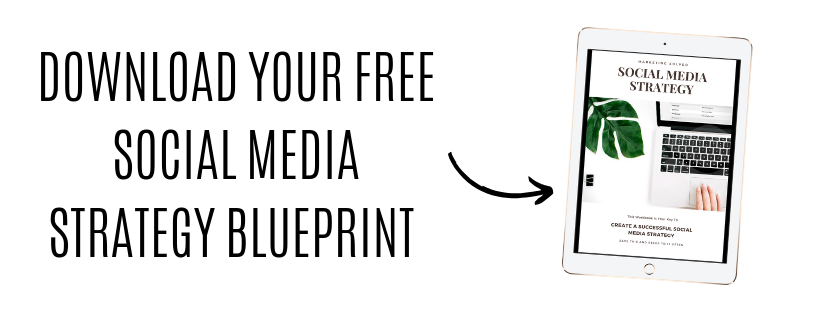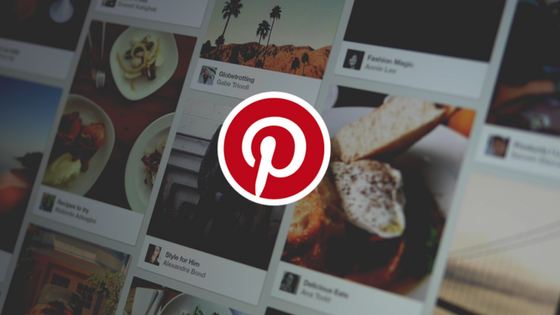Why Social Media Isn’t a Replacement for Your Website
“Why do I need a website?” isn’t really a question I get asked a lot, which is actually preferable to what I have been seeing and hearing. What I have been noticing is a lot of business owners making a statement rather than asking a question. The statement goes a lot like this:
“You don’t need a website. Get yourself a Facebook page, that’s all you need.”
I’m sure you’ve already figured out where I was headed with the assessment of this statement. But let me still point out a couple of things I strongly dislike this statement:
1) The first thing is that this person is telling another person this. The worst part is it’s usually someone in the same industry, a colleague. Asking a question is one thing, but this right here is spreading fake news.
2) This person seems to know all the answers even though I’m trying to pick my jaw up off of the floor in disbelief over how wrong that statement is.
Now don’t get me wrong, I’m not some website/SEO marketing, hard a**, know-it-all (okay, maybe a little), but a statement more similar to:
“I just have a Facebook page, it seems to be doing great for me. I can’t seem to justify creating and managing a website.”
…Would have been much, much more acceptable.
So without further ado let’s put these statements to rest and more accurately answer the question, “why do I need a website?”
Social Media is Limited
At the end of the day, you are using someone else’s platform to conduct your business. What you would like the platform to do versus what it can do only adds to the importance of having your own editable website.
New features for social media won’t be added in until there is a high enough demand for them. Even so, if the demand is there, the social outlet company needs to assess whether or not that new feature will drive engagement or some other positive metric to their platform.
With your own website, you can control what you can and don’t want to feature.
It is Your Business Online
A Facebook page isn’t your online store. It’s a representation of your online store. A booth at an online trade show if you will. At this online trade show, you showcase what your business is about, run raffles, interact with your audience, and even distribute advertisements and product knowledge.
But most importantly, at all trade shows, you distribute your business card. Your business card on Facebook or any other social media platform is a direct link to your website. Your advertisements and product knowledge are all produced and designed to get a customer to move somewhere else in the buying journey.
Yes, you can hand out articles and packets of information at the trade show, but you didn’t write them there. You wrote them somewhere else, presumably at home or in the office. Facebook is merely the place you distribute that information.
If you don’t have a website, the only place your business exists is on social media, and social media doesn’t have all of your customers on it, nor may that particular platform be around forever.
You Don’t Own Your Social Media Profile
Speaking to the point above. Your social profile isn’t yours. It’s property of the network you’re on and is subject to removal (although unlikely). Because you don’t own your social media profiles, you don’t have much control over what shows up. Including negative reviews or consistently bad comments.
Even though these aren’t likely, you can still respond to negative reviews positively or delete bad comments and ban users, but the toll on your time for reputation management can be a lot. With your own website, if you don’t want reviews at all, don’t post them.
If you don’t want people leaving bad comments, either don’t allow comments on your blog or only approve ones that aren’t negative.
Websites Are Universal
Not everyone has a Facebook profile, believe it or not. If not everyone has a Facebook profile, that means not everyone has a LinkedIn, or Twitter, or YouTube, or Instagram. Some of my most valuable clients don’t even have a Facebook account, yet still sign on to do digital marketing (including Facebook advertising) for them for their business.
What if some of your best clients are still out there but don’t know your business exists simply because they don’t have the social media account for the network that your business is on? You know what you don’t need a profile for? Using search engines. Visiting websites. Etc.
Websites Outrank Social Profiles in Search Engines
Think of a keyword that you’d expect your customers to search for in the search engines to try and find a business like yours. If you’re a business coach, you might simply type in, “Business Coaches” into Google or Bing.
First of all, there are ZERO results on the first page of Google for that keyword that link to a business’ social media profile… or the 2nd… or the 3rd… or the 4th.
Second, almost every organic listing that shows up is an article featured on a website. Why? Because blogging on a website is the one of the number one ways to optimize your business for search engines.
Google has even stated that social media is NOT taken into consideration as its own ranking factor.
If you only have your business on Facebook, you can forget about showing up in Google for someone searching for your products or services.
More People Navigate to Websites through Search Engines than Social Media
A study by Forrester found that 71% of people start their buying journey using search engines and 74% of them use search engines for research during the consideration stage of the buying journey.
If you think your business is doing just fine by only having social media profiles, imagine how great it would be doing if you got your name out there on search engines with your own website. With this in mind, it’s clear to see that the majority of internet users are looking for a website as their end game in making a purchase. If all you have is a business Facebook account, you could be leaving a lot of customers on the table looking confused as to what to do next.
Maybe in the future social media will dominate websites, but after shaking my magic 8-ball, I keep getting the same answer,
“Signs point to no.”
Customer Behavior Tracking
Assuming you’ve followed my writings in the past, you’re probably familiar with the Facebook Marketing Daily Checklist.
The checklist puts heavy emphasis on reviewing your Facebook metrics, which is very important. But with all the metrics, engagements, and views Facebook can show you on your campaigns and posts, it still lacks data that website analytics can provide.
Data such as how long users were on your site. How long people were looking at specific pages, and even their journey across your page and where you may have lost them. Behavior tracking with a website can show you valuable information about your target audience such as what things interests them, what sources they found your website on, what keywords they typed in to find your business, and how many people come back to your site in a specific period of time.
All of this information can be paramount in determining the correct messaging and targeting to future customer audiences, just like I explained in one of my latest pieces, “You Just Collected a Bunch of Leads from Social Media. Now What?”.
Summary
Don’t get me wrong. I’m not knocking on social media. Being on social media is one of the most important and crucial place for your business to be. It’s just not the be-all end-all place. There’s a phrase we used at the marketing agency I used to work for, it was, “Always and everywhere”. This relates to your company message.
Always have a message.
And place your message everywhere.
If you’re only on social media, your message is missing 71% of the online market beginning their buying quest with search engines.
Websites are never free, but do you know what is? Click the link below and get free stuff!









